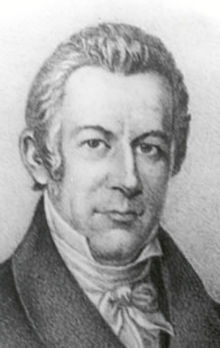William Findlay (governor)
| William Findlay | |
|---|---|
 |
|
|
United States Senator from Pennsylvania |
|
|
In office December 10, 1821 – March 3, 1827 |
|
| Preceded by | Jonathan Roberts |
| Succeeded by | Isaac D. Barnard |
| 4th Governor of Pennsylvania | |
|
In office December 16, 1817 – December 19, 1820 |
|
| Preceded by | Simon Snyder |
| Succeeded by | Joseph Hiester |
| Treasurer of Pennsylvania | |
|
In office 1807–1817 |
|
| Preceded by | Isaac Weaver, Jr. |
| Succeeded by | R. M. Crain |
| Member of the Pennsylvania House of Representatives | |
|
In office 1804-1807 |
|
| Personal details | |
| Born | June 20, 1768 Mercersburg, Pennsylvania |
| Died | November 12, 1846 (aged 78) Harrisburg, Pennsylvania |
| Political party | Democratic-Republican Party |
| Spouse(s) | Nancy Irwin (?-July 27, 1824; her death) |
| Signature | |
William Findlay (June 20, 1768 – November 12, 1846) was the fourth Governor of Pennsylvania from 1817 to 1820, and a United States Senator from 1821 to 1827.
He was born in Mercersburg, Pennsylvania, Franklin County, Pennsylvania, June 20, 1768 to Samuel Findlay and Jane Smith. He was a brother of James Findlay and John Findlay. Samuel Findlay's father, equally named Samuel Findlay, was born in County Londonderry in Ulster in 1711, settled in the Province of Pennsylvania in 1730 and died in Mercersburg, Pennsylvania in 1739.
After receiving a common-school education, he became a farmer, and early took part in politics as a Jeffersonian Democrat. He served as brigade inspector in the state militia, studied law, was admitted to the bar and commenced practice in Franklintown, Pennsylvania. He served in the Pennsylvania House of Representatives in 1797 and 1804-1807, and was state treasurer from 1807 to 1817.
In 1817, Findlay was nominated for the post of governor in the state's first open convention. He was elected governor and served until 1820. He was the first governor to lead the state from its new capital of Harrisburg, running many of the functions of government out of his own home while the new capitol building was under construction. He was defeated for re-election in 1820 by Joseph Hiester.
...
Wikipedia
